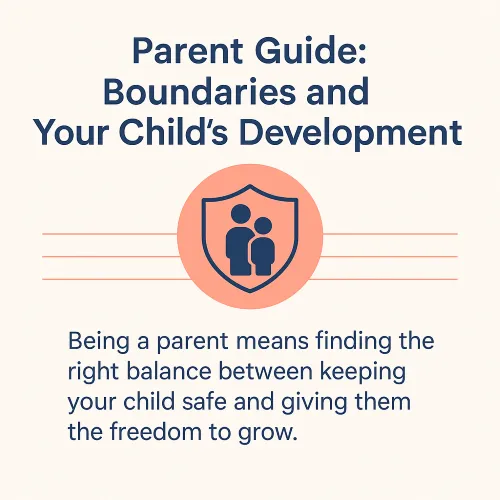Introduction to Positive Parenting?
Parenting is a journey filled with immense joy, profound challenges, and continuous learning. Over the years, approaches to raising children have evolved significantly, moving away from stricter, often punitive methods towards more nurturing and supportive models.
Within this evolution, positive parenting has emerged as a widely discussed and increasingly adopted philosophy. This approach centers on building a robust, healthy relationship between parent and child, recognising that connection and understanding are fundamental to a child's development and well-being.
It is not merely a set of techniques but a fundamental shift in perspective, viewing discipline not as punishment, but as an opportunity for teaching and growth within a framework of love and respect.
Background and Context
Understanding positive parenting requires examining its foundations and how it diverges from historical norms. This approach is rooted in psychological theories emphasising child development, attachment, and the impact of environment on behaviour. It stands in contrast to older, more authoritarian styles that often relied on strict obedience and physical discipline.
Defining Positive Parenting
At its heart, positive parenting is an approach that focuses on fostering a strong, supportive, and loving relationship between parents and children while guiding behaviour through empathy, encouragement, and consistent boundaries.
It is based on mutual respect and the understanding that children thrive in environments where they feel safe, heard, and valued. This philosophy acknowledges that children's behaviour is often a form of communication, stemming from their needs, emotions, or lack of understanding.
Instead of focusing solely on stopping undesirable actions, positive parenting seeks to understand the root cause, teach alternative behaviours, and build a child's internal motivation and self-control. It involves active engagement, emotional availability, and a commitment to seeing the world from the child's perspective, or cognitive empathy (Boch and Lamm, 2017).
Research indicates that parental empathy towards children influences parenting practices, which in turn affects child outcomes (Gonzalez and Rodriguez, 2020).
Contrasting with Traditional Parenting Approaches
Traditional parenting approaches often encompassed a spectrum from authoritarian to permissive, with varying degrees of warmth, control, and communication.
Authoritarian parenting typically prioritised obedience, using punishment as the primary method of discipline, with less emphasis on the child's feelings or rationale.
Permissive parenting, conversely, might offer high warmth but low control, often struggling with setting limits.
Positive parenting differentiates itself by combining high warmth and responsiveness with clear, consistent expectations and boundaries, aligning more closely with the authoritative style in some models (Musitu-Ferrer et al., 2019; Bi et al., 2018).
Unlike methods focused on immediate compliance through fear or reward manipulation, positive parenting is a long-term strategy aimed at developing a child's character, emotional intelligence, and intrinsic motivation. It moves beyond simply managing behaviour to building a child's capacity for self-regulation and understanding of social norms through positive interactions and guidance (Williams, Biscaro and Clinton, 2019).
Key Principles of Positive Parenting

Positive parenting rests upon several interconnected principles that guide parental behaviour and interaction. These pillars create the supportive environment necessary for children's optimal development, focusing on connection, understanding, and respectful guidance.
Building a Strong Parent-Child Relationship
The cornerstone of positive parenting is the cultivation of a secure and loving relationship between parent and child. This bond, often discussed in terms of attachment theory, provides children with a sense of security and belonging, which is essential for exploring the world and developing independence.
A strong relationship is built through consistent presence, emotional availability, and genuine interest in the child's life, experiences, and feelings. Quality time and regular positive interactions reinforce this connection (Williams, Biscaro and Clinton, 2019).
A secure attachment relationship with at least one healthy adult is considered essential for a child to develop optimal coping abilities (Williams, Biscaro and Clinton, 2019). Studies highlight the long-term consequences of parent-child relationship quality on positive mental well-being, with consistent links found between perceived parental care and higher well-being in offspring across different life stages (Stafford et al., 2015).
Empathy, Understanding, and Validation
Empathy is central to positive parenting. It involves trying to understand the child's feelings and perspective, even when their behaviour is challenging (Gonzalez and Rodriguez, 2020).
Validating a child's emotions does not mean agreeing with their behaviour, but acknowledging and naming their feelings ("I can see you're feeling frustrated because your tower fell down").
This helps children feel heard and understood, teaching them about emotions and how to manage them. Parents who demonstrate empathy can model this crucial skill for their children (Musitu-Ferrer et al., 2019)
Research suggests that being able to understand and respond to a child's emotions is an integral part of parent-infant relations from infancy onwards (Ockelford, 2017). Parental empathy is theoretically distinct from trait empathy but is a critical component of parenting effectiveness (Gonzalez and Rodriguez, 2020).
Mutual Respect and Trust
Positive parenting operates on the principle of mutual respect. Parents respect their children as individuals with their own thoughts and feelings, and in turn, children learn to respect their parents and others. This differs from traditional models where respect was often seen as a one-way street, demanded by parents from children based on authority.
Trust is built through consistent, reliable, and honest interactions. When parents trust their children (within age-appropriate limits) and children trust their parents to meet their needs and provide guidance, the relationship is strengthened, creating a foundation for open communication and cooperation.
Setting Consistent and Loving Boundaries
While emphasising warmth and connection, positive parenting is not permissive. It involves setting clear, age-appropriate limits and expectations. Boundaries provide children with a sense of security and structure, helping them understand what is expected and navigate the world safely.
Consistency in enforcing these boundaries, coupled with love and understanding, teaches children self-discipline and respect for rules. Discipline is viewed as an opportunity to teach and guide, rather than punish. This might involve natural consequences or problem-solving together, always maintaining the child's dignity.
Practical Strategies to Cultivate Connection

Translating the core principles of positive parenting into daily interactions requires specific strategies and techniques. These methods focus on communication, guidance, and building the child's competence and connection within the family.
Effective Communication and Active Listening
Open and honest communication is vital. This involves talking to children in a way they can understand, explaining reasons behind rules and expectations, and genuinely listening to what they have to say.
Active listening means paying full attention, showing interest, asking clarifying questions, and reflecting back what you've heard to ensure understanding. This validates the child's feelings and perspective, enhancing the parent-child bond and modelling good communication skills for the child (Williams, Biscaro and Clinton, 2019).
Engaging in positive communication patterns within the family environment is linked to the development of empathy in children (Abdullah and Salim, 2020).
Guiding Behaviour Through Encouragement and Natural Consequences
Instead of relying heavily on punishment, positive parenting uses encouragement and logical or natural consequences to guide behaviour. Encouragement focuses on effort and progress, building a child's self-esteem and motivation ("I see how hard you're trying to tie your shoes, keep going!"). This differs from praise, which might focus solely on the outcome.
Natural consequences allow children to learn from the direct results of their actions (e.g., not putting a toy away means it might get lost or broken). Logical consequences are related to the behaviour but set by the parent (e.g., if siblings are fighting over a toy, the toy is put away for a period). These methods help children understand the impact of their choices and develop responsibility.
Fostering Independence and Competence
Positive parenting supports children in becoming capable and independent individuals. This involves allowing children to attempt tasks themselves, even if it takes longer or results in mistakes, and offering support rather than taking over.
Giving children age-appropriate responsibilities, allowing them to make choices, and celebrating their achievements (no matter how small) builds their confidence and sense of competence. Providing opportunities for independence helps children develop problem-solving skills and self-efficacy, which are important for future success and well-being.
Prioritising Quality Time and Connection
In today's busy world, dedicated quality time with children is more important than ever. This means setting aside distractions like phones and focusing fully on interacting with the child. It can involve playing together, reading, sharing meals, or simply talking about their day.
These moments strengthen the emotional connection, make children feel valued, and provide opportunities for parents to observe, understand, and respond to their children's needs. Increased emotional closeness and more time for free play have been identified as positive experiences in parent-child relationships (Woźniak-Prus et al., 2020).
The Far-Reaching Impact: Benefits for Children and Families

Adopting a positive parenting approach yields numerous benefits, influencing not only the child's development but also the overall family dynamic and parental well-being.
Promoting Emotional Intelligence and Resilience in Children
Children raised with positive parenting are more likely to develop strong emotional intelligence. By experiencing empathy, understanding, and validation from their parents, they learn to recognise and manage their own emotions and understand the feelings of others (Calandri et al., 2019).
This builds resilience, their ability to cope with stress, setbacks, and challenges throughout life. Positive experiences in the parent-child relationship can contribute to children's development of empathy (Woźniak-Prus et al., 2020; Abdullah and Salim, 2020).
Children from families practising authoritative and indulgent styles, which share characteristics with positive parenting, show higher levels of empathy (Musitu-Ferrer et al., 2019).
Improving Behaviour and Reducing Family Conflict
While not a quick fix for all behavioural issues, positive parenting strategies tend to result in improved behaviour over time. By addressing the root causes of misbehaviour and teaching appropriate coping and social skills, children are better equipped to make positive choices.
The emphasis on mutual respect and effective communication reduces power struggles and misunderstandings, leading to a decrease in family conflict. Instead of battling wills, parents and children learn to collaborate and problem-solve together. Higher levels of parental care are associated with lower psychological control, which in turn relates to higher well-being in offspring (Stafford et al., 2015).
Strengthening Long-Term Family Bonds
The focus on building a strong, loving relationship creates enduring family bonds. As children grow into adolescents and adults, the foundation of trust, respect, and open communication established in their younger years continues to support a close relationship (Boshoff and Perumal, 2017).
This is particularly beneficial during potentially challenging phases like adolescence, where a strong connection helps navigate increased independence and peer influence (Bi et al., 2018).
The quality of parent-child relationships in mid- to later life continues to influence parental psychological distress, highlighting the long-term nature of these bonds.
Boosting Parental Confidence and Well-being
Positive parenting can also have significant benefits for parents. As they see their children respond positively and the family environment becomes more harmonious, parental confidence can increase (Wulandari and Afiatin, 2020; Woźniak-Prus et al., 2020).
Mastering new communication and guidance techniques can feel empowering. Additionally, a less conflict-ridden home reduces parental stress, contributing to overall parental well-being. However, it is worth noting that parental self-reports on positive parenting may sometimes be higher than observed behaviours, particularly for parents with higher levels of hyperactive/impulsive symptoms (Lui et al., 2013).
Common Challenges and How to Overcome Them
Implementing positive parenting is not without its challenges, and the approach is sometimes misunderstood. Recognising and addressing these aspects is key to successful practice.
Dispelling the Myth of Permissiveness
A common misconception is that positive parenting is permissive parenting. This is incorrect. Positive parenting is highly involved and provides clear structure and boundaries. The difference lies in how these boundaries are set and maintained – with warmth, respect, and a focus on teaching, rather than through harsh punishment or simply giving in. Positive parenting emphasises guiding behaviour while upholding limits, ensuring children feel safe and understood within those boundaries.
Handling Difficult Emotions and Challenging Behaviour
Children will inevitably experience difficult emotions and exhibit challenging behaviours. Positive parenting does not mean a conflict-free existence. It equips parents with tools to navigate these moments constructively.
This involves staying calm (or modelling how to regain calm), acknowledging the child's feelings, setting limits on unacceptable behaviour, and problem-solving together. It is about teaching children healthy ways to express and manage their emotions, even when it is difficult. Empathy is crucial here, helping parents connect with the child's underlying feelings even amidst a tantrum (Gonzalez and Rodriguez, 2020; Ockelford, 2017).
Maintaining Consistency in a Busy World
Consistency is vital for positive parenting to be effective, but achieving it can be hard when juggling work, other responsibilities, and personal needs. Children learn through predictability, and inconsistent responses to behaviour or boundaries can be confusing.
Strategies for maintaining consistency include establishing clear family rules, communicating expectations clearly to children and other caregivers, and developing routines. It requires conscious effort and coordination among all involved in the child's care.
The Crucial Role of Parental Self-Care
Positive parenting requires emotional presence and energy. Parental burnout is a real risk, especially when parents feel depleted.
Prioritising self-care is not selfish; it is essential for parents to be able to show up for their children in a positive way. This includes ensuring adequate rest, seeking support from partners, friends, or family, making time for personal interests, and managing stress.
Parental self-efficacy and social support are strong predictors of positive experiences in parent-child relationships, highlighting the importance of supporting parents themselves (Woźniak-Prus et al., 2020; Lachman et al., 2013).
Conclusion
Positive parenting represents a profound shift in how we approach raising children, moving towards a model built on relationship, respect, and understanding. It offers a framework for guiding children's development that supports their emotional intelligence, resilience, and overall well-being.
By focusing on empathy, consistent boundaries, and open communication, parents can navigate the challenges of child-rearing while strengthening family bonds.
While requiring conscious effort and facing potential misunderstandings, the long-term benefits for children and families underscore the value of embracing this nurturing and empowering approach.

